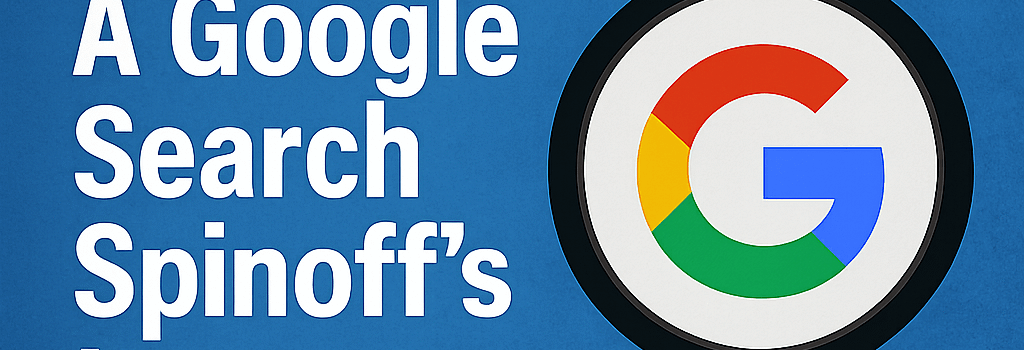Redefining the Internet: A Google Search Spinoff’s Impact

Introduction
Google’s dominance in web search has shaped how billions find information every day. After losing a landmark US Department of Justice antitrust suit in June 2025, the company faces a possible remedy mandating that it license its core search index and ranking algorithms via an external API. Critics call it a spinoff; Google calls it “white labeling.” Either way, the move could crack open the search market and remake online discovery.
As the final ruling approaches in August 2025, stakeholders from startups to Fortune 100 corporations are evaluating the technical, economic, and regulatory fallout of opening up what the DOJ terms the “essential raw material” for any general search engine.
The Search Index Ecosystem
Today, three principal web indexes power most search products:
- Google: Crawls over 100 trillion distinct URLs across 200+ data centers, storing an index exceeding 125 petabytes in Colossus file systems and Bigtable clusters. Updates occur every 24–48 hours.
- Bing/Microsoft: Maintains ~50 trillion pages, closely integrated with GPT-4o in Azure AI, offering multimodal retrieval features.
- Brave: Operates a selective index of ~25 billion URLs, focusing on high-signal pages. Uses blockchain-based attestations for crawl provenance.
All major AI-powered tools—ChatGPT, Microsoft Copilot, and Google Bard—leverage one or more of these indexes to ground responses in live web data.
Technical Architecture of a Licensed Search Index API
The DOJ’s proposed data remedy envisions Google exposing its backbone via standardized web services:
- REST Endpoints: Query, RetrieveDocument, and Metadata operations, each accepting JSON payloads.
- Authentication: OAuth 2.0 with scoped tokens and per-client quotas.
- Rate Limits: Baseline of 10,000 queries per second (QPS), with tiered pricing at ~$0.001 per query and enterprise packages for higher throughput.
- Latency Guarantees: p95 response times under 50 ms, with SLA credits for breaches.
- Result Formats: Raw documents, ranked snippets, PageRank/BERT scores, structured JSON for rich media.
Data Privacy and Compliance Considerations
Licensing Google’s index triggers complex privacy and regulatory issues:
- GDPR/CCPA: Index metadata may include personal data requiring lawful basis for processing.
- Retention Policies: API consumers must purge or anonymize GDPR-defined personal info within mandated timeframes.
- Security Standards: TLS 1.3 encryption, SOC 2 Type II audits, and ISO 27001 certification to protect query logs.
Economic and Competitive Implications
Expert economists predict that licensing Google Search could spawn hundreds of new entrants:
“Once the index is available under a nondiscriminatory fee schedule, we’ll see vertical search engines, hyper-local portals, and niche research tools proliferate,” says Dr. Dean Yang, antitrust professor at the University of Washington.
However, sustainability for smaller players remains in question. If Google prices at marginal cost, rivals may struggle to cover overhead for complementary services such as UI development, infrastructure, and customer support.
Impact on the Advertising and Data Marketplace
Search advertising accounts for over 80% of Google’s ad revenue. Opening the index could reshape the adtech ecosystem:
- Ad auctions could fragment across multiple search front ends.
- Targeting data from clickstreams may require new data-sharing agreements.
- Privacy-centric engines like DuckDuckGo could leverage the index without compromising user anonymity.
Expert Perspectives
“This is the most significant shake-up since the DOJ’s breakup of AT&T in the 1980s,” asserts Kara Swisher, veteran tech journalist. “The outcome will determine whether search remains centralized or becomes a bastion of open innovation.”
OpenAI’s Head of Partnerships Nick Turley testified that access to Google’s index would enhance LLM grounding, reducing hallucinations and improving answer fidelity. Currently, most models rely on Bing’s public API.
Future of AI-Driven Search
Legacy “10 blue links” are already giving way to AI Overviews and conversational assistants. Key trends:
- Agentic Search: Multi-step workflows where the system autonomously queries the index to compile comprehensive reports.
- Multimodal Retrieval: Integrating images, video transcripts, and semantic embeddings from models like Google’s MUM.
- Personalization: On-device federated learning enables private tuning of ranking algorithms based on user preferences.
Brave’s search lead Josep Pujol observes, “AI convenience is inevitable. Our focus is on transparent sourcing and giving users control to opt out of AI if they prefer traditional links.”
Conclusion
The compelled spinoff of Google Search via licensing could democratize access to the Internet’s largest index, catalyzing innovation across AI, vertical applications, and local services. Yet challenges around pricing, privacy, and competitive balance must be addressed to ensure a vibrant, diverse search landscape.
Ultimately, whether this antitrust remedy unleashes a thousand search startups or consolidates a new monopoly in AI-powered retrieval hinges on technical implementation and regulatory oversight in the months ahead.